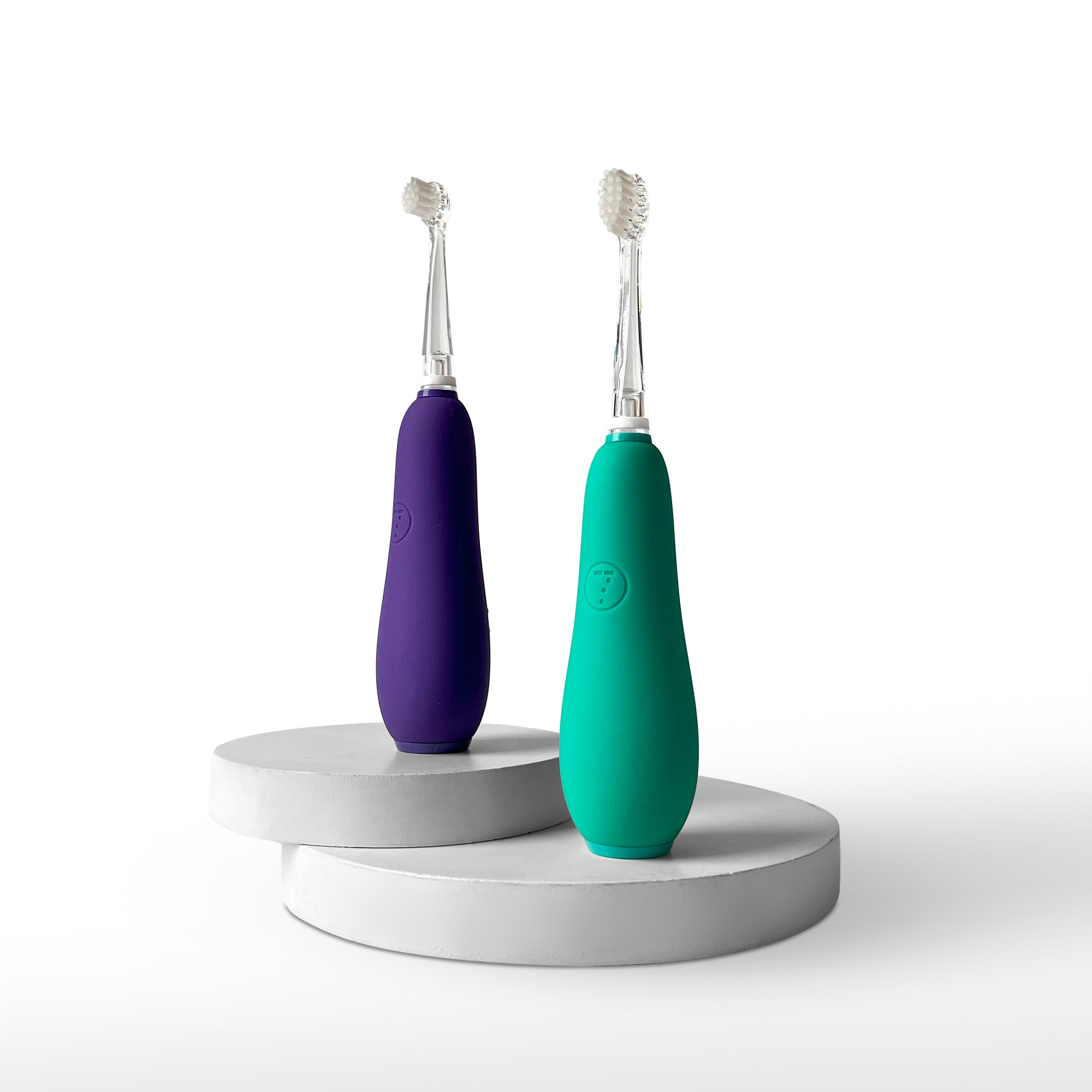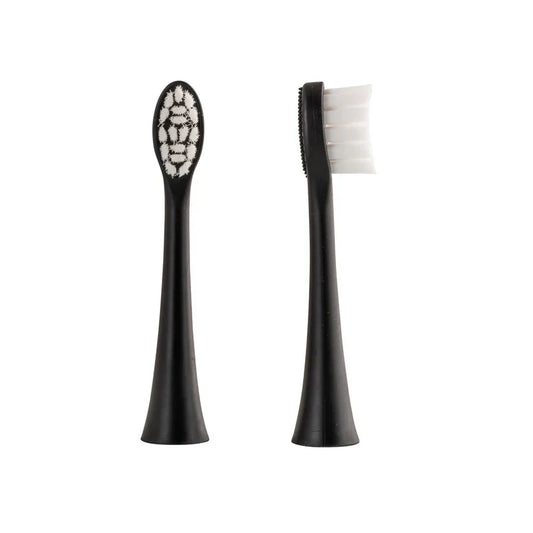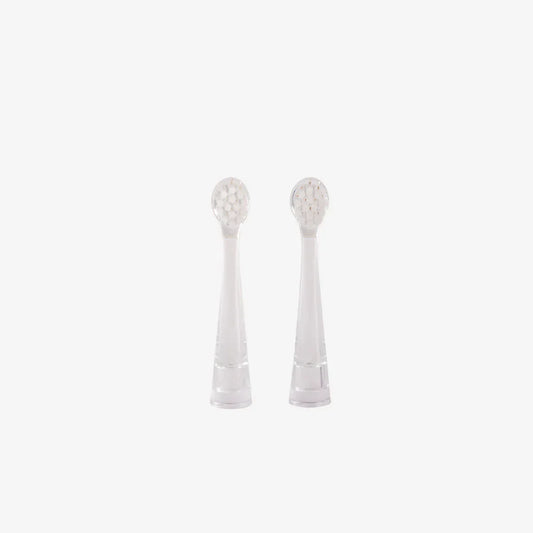Have to ever wondered about the best way to start your morning?
A fresh breath is the perfect way to kickstart your morning routine. But what if you have an upsetting moment when you see a bit of blood in the sink or on your toothbrush?
It is definitely not a pleasant sight.
Don’t worry, there’s positive news regarding this problem. Bleeding gums is totally treatable.
It's a common issue that many of us experience at some point in our lives. Whether you're a diligent oral hygiene enthusiast or the occasional brusher, bleeding gums can happen to anyone.
In this blog post, we will delve deep into the reasons behind gum bleeding, its potential implications for your oral health, and most importantly, how you can put a stop to it.

Why Do Gums Bleed?
1. Bleeding Gums Causes
First things first, let's talk about why your gums might be bleeding:
2. Improper Dental Care:
Neglecting to brush and floss adequately can allow plaque to accumulate, resulting in gum irritation and bleeding gums.
3. Medications:
Some medications and certain health issues have the potential to cause bleeding gums. Therefore, it is crucial to consult with a medical professional or your doctor regarding this matter.
4. Tobacco Use:
Smoking and the use of smokeless tobacco products can irritate and damage gum tissue, leading to bleeding.
5. Hormonal Changes:
Pregnancy, menstruation, and menopause can cause hormonal fluctuations that may make gums more susceptible to bleeding.
6. Ill-Fitting Dental Appliances:
Dentures or braces that don't fit properly can create friction and lead to gum irritation and gum bleeding.
Effects of Bleeding Gums on Your Oral Cavity
1. The progression of gum disease
Bleeding gums indicate the initial stage of gum disease known as gingivitis. This can progress into periodontitis (an advanced stage of gum disease). If periodontitis is not treated properly, you’re at risk of tooth mobility and bone destruction. Hence, it is important to treat the initial signs before they advance and lead to tooth loss.
2. Risk of Cavities
Bleeding gums can be caused due to bacterial buildup between your gumline and tooth surface. This is due to poor oral hygiene. If you don’t brush or floss properly you’re at the risk of developing cavities from this bacteria.
3. Foul Breath
One typical issue that arises when you have bleeding gums is foul breath. Due to poor oral hygiene, the plaque accumulation increases leading to bad breath.
4. Sensitive Teeth
In the advanced stages of gum disease, your gums may recede. This will lead to the exposure of the roots of your teeth which indicates sensitivity in your teeth.
5. Overall Health Connection
There is a strong linkage between gum diseases and systemic diseases.
Do you know, that individuals with diabetes have a higher risk of developing periodontitis?
Gum diseases are more common in people with uncontrolled diabetes, which is why bleeding gums is concerning.
Now that we’ve learned about why your gums bleed and what could happen if you ignore it.
Let’s dive into some easy methods to manage your bleeding gums:
How to stop bleeding gums?
Home remedies for bleeding gums -
You can maintain the health of your gums by following these easy instructions:
1. Proper Brushing
Use a soft-bristle toothbrush and be gentle but thorough. Don't forget to use fluoride toothpaste to help your teeth stay strong. This will help you to cure bleeding gums.
Use fluoridated toothpaste to make your teeth super strong and prevent them from any cavities.
2. Flossing and Interdental cleaning
Clean between your teeth and along the gumline. This is essential for getting rid of plaque and avoiding bad breath. Using a floss or interdental brush can help you to clean the spaces between your teeth.
3. Mouthwash
An antimicrobial mouthwash can help reduce gum inflammation and keep harmful bacteria at bay, which is excellent for your gums.
4. Healthy Diet
A balanced diet with the right vitamins and minerals is fantastic for your gum health.
Utilizing Advanced Toothbrush Technology
The Seven Oral Care Electric Sonic Toothbrush is the ultimate choice! It's meticulously crafted with cutting-edge technology to provide your mouth with the utmost care it deserves.
This is the real deal!
It's designed with all the latest tech to give your mouth the best care possible. It comes with a timer to make sure you brush for the recommended two minutes. Plus, there are three different modes for your brushing routine which is a huge help in protecting your gums. If you have sensitive teeth or simply prefer a gentle yet thorough cleanse, our Super Brush is here to provide you with the love you need. With vibrations ranging from 24,000-33,000 per minute, this toothbrush offers a gentle yet effective cleaning experience.
Including Seven Oral Care's electric sonic toothbrush in your routine can help keep those gums healthy and your smile shining. So, if you're ready to say goodbye to gum bleeding, check out their fantastic products. Regular brushing helps you to stop bleeding gums.

Recognizing When to Seek Professional Help
After covering various aspects of preventing and managing bleeding gums at home, it's important to address more serious situations. This is when seeking assistance from a professional becomes necessary for your dental treatment. Let's explore when it's appropriate to reach out for help and discover the potential solutions they can offer you.
1. Persistent Bleeding:
If your gums continue to bleed, even after trying the various tips and tricks we discussed earlier, it is important to take action by scheduling a professional appointment. Frequent or heavy bleeding hums may indicate a serious underlying issue that requires expert attention.
2. Advanced Gum Diseases:
If your gums are not only bleeding but also feeling swollen, and painful, or have receded significantly, you could be dealing with a more advanced stage of gum disease, like periodontitis. This is when it's crucial to see a dentist. They'll evaluate the extent of the problem and discuss treatment options with you.
3. Scaling and Root Planning:
This is a professional dental treatment that focuses on cleaning your teeth below the gumline. Dentists use specialized tools to remove plaque and tartar buildup, which is often the cause of gum diseases. By doing this, they can help your gums heal and reattach to your teeth.
4. Periodontal Surgery:
In severe cases, surgery might be necessary. This can include procedures like gum grafts, which help cover exposed tooth roots, or flap surgery, which involves lifting back the gums to clean the roots more thoroughly.
5. Antibiotics:
For cases of advanced gum disease, your dentist might prescribe antibiotics to help control the infection and promote healing.
Conclusion:
Recognizing gum issues and getting professional help is essential for gum health and overall oral well-being. If any persistent bleeding, pain, or other concerning symptoms are experienced, scheduling an appointment with a trusted dentist without hesitation is recommended. Dentists possess the proficiency and tools needed to evaluate the condition and provide appropriate treatment options, guiding you toward a healthier smile. Always remember that proper care and attention to your gums and teeth are certainly worthwhile.
Ready to upgrade your oral care routine and put an end to bleeding gums? Take action now! Click here to explore our top recommendations for electronic toothbrushes, including the advanced Seven Oral Care Electronic Sonic Toothbrush, and start your journey to a healthier, happier smile.







